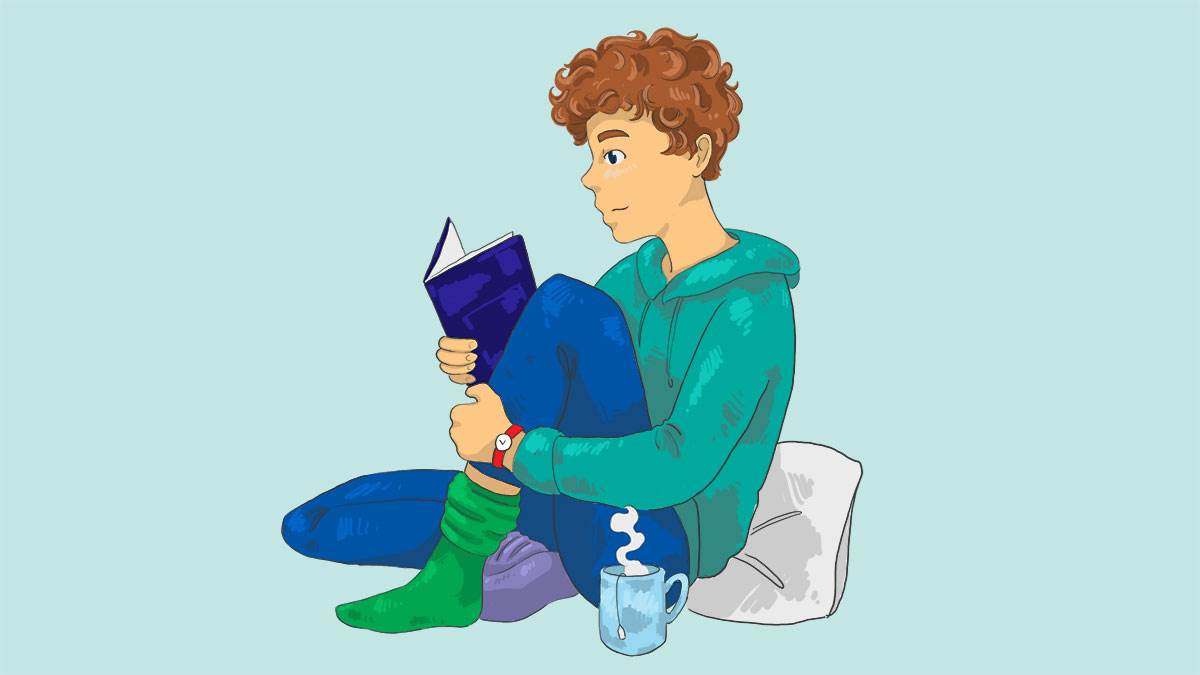'There is still a stigma around dyslexia': Parent and author Malcolm Duffy explores the topic in his latest book for children
Published on: 04 May 2022 Author: Alex Strick
Malcolm Duffy talks about his oldest daughter's diagnosis of dyslexia in secondary school, and why the condition is at the forefront of the prize-winning author's third novel, Read Between the Lies.

Illustration by Emily Rowland
There’s a clear sense that this is a book written by someone with a deep-rooted knowledge of dyslexia – can you tell us about your own experience?
My eldest daughter, Tallulah, was diagnosed with dyslexia at the start of secondary school. She’d always had an issue with processing, and her writing wasn’t great, but we had no idea she was dyslexic until she was properly assessed.
I was also fortunate enough to be asked to write a short film about dyslexia, telling the amazing true story of Pat and Mike Jones. Mike had been thrown out of several schools for being violent, disruptive, and poor in class, but his Mum knew that Mike was bright. She set about developing her own techniques to help Mike read and write. He went on to become a top pupil, and he and Pat set up Nessy, the online learning platform for dyslexics across the world.
I learned so much about dyslexia from Pat and Mike.
You balance the dyslexia aspect of the book very well, to ensure it doesn’t overshadow other elements of the plot – presumably this was important?
Yes, writing is all about balance. Dyslexia is at the heart of the novel, but there are other elements to the story too that need to be told. When I do my re-writes, I make sure the story flows, and that all the plot lines are complementing each other.
Can you share any key tips or strategies you have learnt about managing dyslexia either through your existing experience or your wider research for the book?
The number one tip is to be assessed for dyslexia by an expert. The earlier this happens with a child the better. But even adults, who have struggled with dyslexia from many years, can still be taught to read and write.
Nessy is a great starting point. But there are many great experts and organizations out there who can help.
Dyslexia comes in so many shapes and sizes that there’s no one-size-fits-all solution. For my daughter, as she struggled to write, learning to touch type was a real game changer.
If you struggle to read, it may help to listen to audio books. It will help you appreciate the sounds associated with different words, and is a stepping stone to becoming a better reader.
We see Tommy trying to hide his dyslexia and other characters revealing that they also struggle with the condition. Do you think there is still a sense of stigma associated with reading difficulties and what we can do to challenge this?
There is still a stigma based around dyslexia. Things are better than they once were, but there’s still a long way to go.
Schools should ensure all children are assessed at an early age. It seems to vary hugely from school to school. If a child is short-sighted, but not given glasses, it will have a huge impact on their ability to learn. The same approach needs to be taken with regards dyslexia. It is a learning difficulty that can’t be cured, but learning methods can be put in place to ensure every child or adult can read and write.
What messages about reading difficulties did you most want to get across to young readers and their families?
I’d like dyslexics to realise there is help available, and that dyslexia is no barrier to leading a successful, fulfilling life.
I’d like non-dyslexics to be more understanding of what it means to be dyslexic; to be kind, supportive, understanding.
Was it also important that this book was accessible to those who struggle with reading and what efforts did you make to try to make it so?
Yes, it’s really important. After discussion with dyslexia experts, we chose Verdana, a dyslexia-friendly font. We also ensured the type size wasn’t too small.
There will also be an audio version of the book, for those who may be struggling to read but still want to engage with a new, relevant story.





